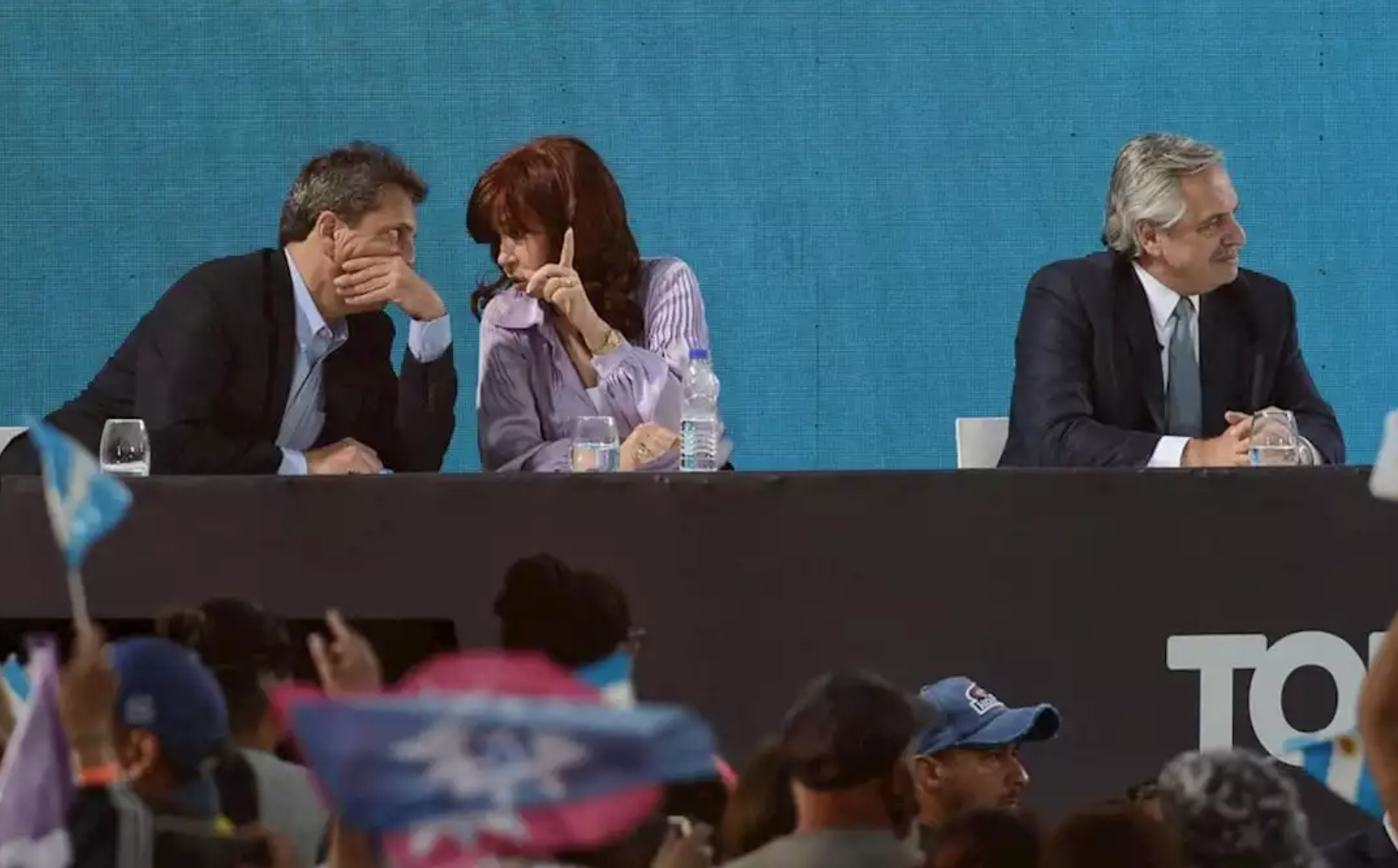After the first year of the self-styled government Frente de Todos government, which took office in 2019, and having passed the moment of greatest isolation of the COVID-19 pandemic, the Argentine Government began to show signs, first, of its disagreements; second, of its divisions and disputes at present. The conflict in the Government is basically expressed between the electoral interests of Cristina Fernández de Kirchner (and the so-called Kirchnerism) and the intentions of President Alberto Fernández and the political sectors of Peronism that support him.
Let us remember that the creation of the Frente de Todos was a strategy of Cristina de Kirchner who doubted her triumph in 2019 and decided to nominate Fernández, but reserving for herself the vice-presidency and, implicitly, the control of the Government. This project started to weaken due to a certain resistance of the president to let himself be dominated, a resistance diminished by a certain fact about the power base of the Government: Cristina.
Nowadays, Argentine politics is heading towards the PASO (open and mandatory primaries) in August and the presidential elections in October. The strong economic crisis Argentina is going through (100% inflation, to put just one indicator) and the social crisis (more than 40% of the population is below the poverty line) allow us to diagnose a real possibility of defeat of the Government and a victory of the main opposition front.
Let us also remember that Juntos por el Cambio is a political agreement between Propuesta Republicana (a political force created by former President Mauricio Macri) and the centenary Unión Cívica Radical. It should be noted, in turn, that in this possible winning front, the candidacies have not yet been settled and there are strong disputes within it.
In Frente de Todos, the competing candidacies are those of the current president, with a very low intention to vote; those of the Minister of Economy, Sergio Massa, an ambiguous politician who supports all his chances of being a candidate on the control of inflation, and that of Kirchnerism. The Vice President announced that she will not be a candidate, so there is great speculation as to whom she will nominate, although her loyalists are clamoring for her to run.
In order to reinforce its scarce possibilities of an electoral triumph, the Frente de Todos began some time ago to declare, and to carry out movements, for the unity of the different sectors (to those already mentioned, provincial governors, mayors, trade unionists, social movements, each one with their own interests, each one with their own interests). The paradoxical issue is that with each speech and real movement on the creation of a consensus and solid political unity, the Front becomes more disunited.
A little less than a year ago, President Fernández began to show timid signs of relative autonomy with respect to the political proposals and desires of his Vice-President Cristina de Kirchner. A little later, from the President’s political space, also timidly, the possibility of his seeking reelection began to be enunciated. This move was labeled by Kirchnerism, plain and simple, as disloyalty and political betrayal. Since then, the search for unity of the Frente de Todos began to be mentioned more and more urgently, while political positions were openly attacked, thus widening the gap between the different sectors.
Recently, at Cristina’s insistence and after hesitations from the President, both met in what was called the Extended Political Table, a meeting in which the main political spaces of the Government converged with the explicit objective of creating policies for this critical moment. The implicit objective is that all possible candidates for the Frente de Todos begin to settle positions.
The result of that meeting was a series of aggressions disguised as sharp phrases from the different sectors regarding who should be the candidate of the Front. The self-absorption of the sectors gives the idea that none of them will give in and that the internal division of the ruling party will continue to feed the crisis the country is going through and the strong social discontent.
If the opposition, involved in similar disputes, although with the advantage of not being the government, were more consolidated on a future government program to solve the innumerable problems of the country, the October election would already be defined.
*Translated from Spanish by Janaína Ruviaro da Silva











